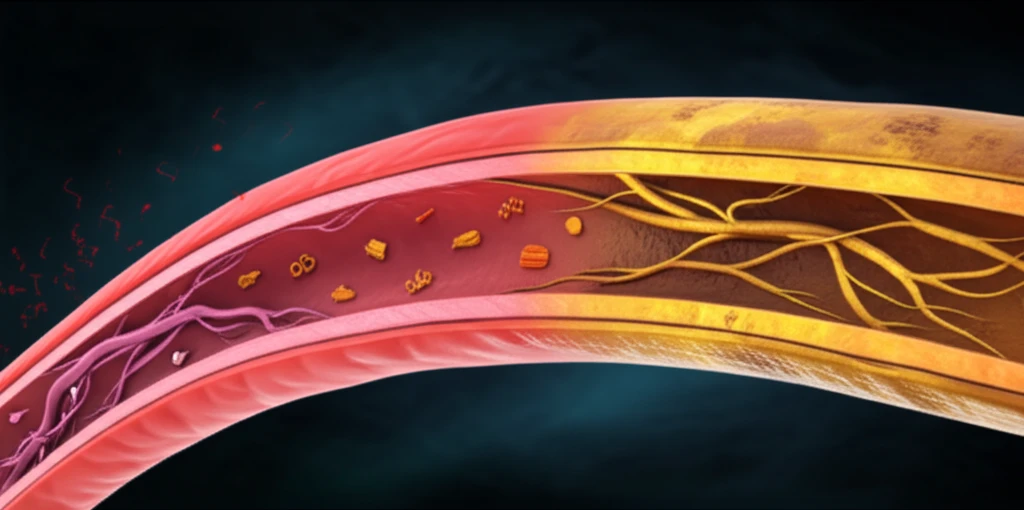
Is Inflammation Sabotaging Your Heart Health? How to Protect Your Arteries
"Uncover the surprising link between inflammation and cardiovascular health, and learn simple steps to safeguard your arteries."
For years, we’ve been told that high cholesterol and a sedentary lifestyle are the biggest threats to heart health. While these factors remain critical, a growing body of evidence points to another silent culprit: inflammation. Inflammation, the body's natural response to injury or infection, can, when chronic, wreak havoc on our arteries, setting the stage for serious cardiovascular problems.
The good news is, understanding the connection between inflammation and your heart empowers you to take proactive steps. By identifying and managing inflammatory triggers, you can protect your arteries and significantly reduce your risk of heart disease. This article dives deep into the science of inflammation's impact on your cardiovascular system and provides actionable strategies to help you keep your heart strong and healthy.
Think of your arteries as the highways of your body, responsible for transporting oxygen-rich blood to every organ and tissue. When inflammation becomes chronic, it's like setting off a chain reaction that damages these vital pathways. This damage can lead to a build-up of plaque, a hardening of the arteries (atherosclerosis), and ultimately, an increased risk of heart attack and stroke.
What's the Link Between Inflammation and Arterial Damage?

The connection between inflammation and arterial damage is complex, involving several key players and processes. Here's a breakdown of how inflammation contributes to cardiovascular problems:
- Immune Cell Activation: The immune system responds to these triggers by releasing inflammatory cells and molecules.
- Endothelial Dysfunction: This chronic inflammation damages the endothelium, the delicate inner lining of your arteries. A healthy endothelium is crucial for regulating blood flow and preventing plaque formation.
- Plaque Formation: Damaged endothelial cells become more susceptible to the build-up of plaque, made up of cholesterol, fats, and other substances. As plaque accumulates, it narrows the arteries, restricting blood flow.
- Artery Hardening: Over time, inflammation contributes to the hardening of arterial walls, making them less flexible and further impeding blood flow.
Take Charge of Your Heart Health Today
Protecting your arteries from the damaging effects of inflammation doesn't require drastic measures. Small, consistent changes to your lifestyle can make a significant difference. By prioritizing anti-inflammatory foods, managing stress, staying active, and working with your healthcare provider to address any underlying inflammatory conditions, you can pave the way for a healthier, stronger heart for years to come. Start today, and your heart will thank you for it.
